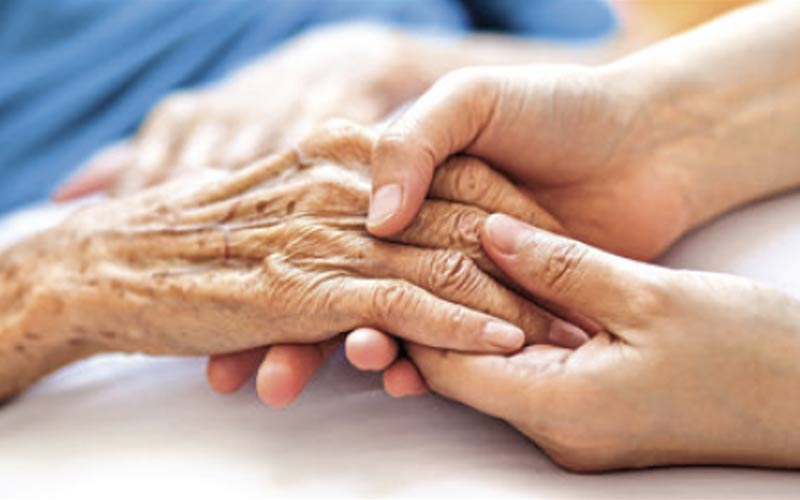Learn more about your health and social services rights
The right to consent to care demystified
Published on May 2, 2024 by Azalée Larouche. Journal Le Canada Français, page A-19.
Everyone who receives services or care from the health and social services network has rights, as defined in the Act respecting health and social services (LSSS). To ensure your rights are respected, it’s important to know what they are. Today, we present the right to consent to care.
To illustrate this, we’ll need several scenarios. Let’s start with the simplest.
Raymond, a 68-year-old man, has been suffering from health problems for several years, including hypertension, diabetes and kidney problems. At his last medical check-up, the doctor informed him that his kidneys were in very poor condition and that dialysis at least twice a week would have to be considered in the very short term. After several days of reflection, he decided he didn’t want any treatment, preferring to focus on comfort care.
When he tells his children about his decision, his daughter tells him she doesn’t agree with it. She considers her decision premature and impulsive. According to her, her father is emotional and can’t make a coherent decision. She decides to consult a lawyer to force him into treatment.
However, Raymond has no cognitive problems and is perfectly capable of making his own decisions. The healthcare professional must respect the patient’s wishes and direct him or her to the appropriate care.
INFORMATION
Emma has been living in the PSR for two years now. Recently, she suffered significant cognitive loss and was deemed unfit by a judge. Her daughter Linda is now her mother’s legal caregiver, and both brothers rely on her to keep them informed of their mother’s needs.
Emma has always been an anxious and worried person. Since she moved into an PSR, the situation hasn’t been so bad. However, for some time now the staff, especially on the night shift, have been saying that she’s too much of a nuisance. Indeed, Emma frequently rings for anything and everything, in addition to wandering. The doctor, aware of the problems Emma’s condition was causing, decided to prescribe her an anxiolytic, an antidepressant and a sleeping pill to help manage the situation.
Meanwhile, Linda senses that her mother is no longer the same. She hardly speaks anymore, complains of headaches and nausea. Worried, Linda discusses her mother’s lethargic state with the nurse. She tells him not to worry. She tells him that the doctor is aware of the situation.
Weeks go by and Emma’s condition shows no sign of improving. She’s visibly losing weight, has no appetite and is very weak. Her daughter can see that something is wrong. In desperation, she asked the archives for a copy of her mother’s prescriptions. She notes the addition of new drugs without being informed. She filed a complaint demanding that the medication be discontinued, as she had not been consulted and it was affecting her mother’s health.

A citizen mandated by a judge may consent to the care of another person.
DANGER
Samuel is a socially active young man in his thirties. He plays in a field hockey league, trains at the gym three or four times a week and takes welding classes. Then came the COVID-19 pandemic, with its attendant restrictions and confinement. At first, he managed to keep in touch with his friends via videoconferencing, but he soon became bored and increasingly isolated. Samuel is alone in his apartment and cut off from the rest of the world.
One day, his neighbor hears him arguing and throwing objects around the room. Worried, he takes a chance and knocks on the door. When Samuel opened the door, it was clear that he was not in a normal state. His words were incoherent and rambling. He threatened to attack him if he came to spy on him again.
The neighbor reported the incident to the police, who came to verify the facts. When Samuel opened the door, he was holding a hammer and threatened to hit the police if they dared enter his home. The police, seeing that Samuel was a danger to himself and others, in turn called the paramedics to take him to the nearest hospital.
He was admitted to psychiatry, where the doctor has 72 hours to request closed custody and a court order for treatment. In this case, Samuel will be forced to take medication without his consent, because he can’t make an informed decision. A physician may require a user to undergo treatment only if he or she represents a danger to himself or herself or to others. However, he cannot do so without a court order. Only then will he be allowed to do so.
CAAP MONTÉRÉGIE
CAAP Montérégie is the community organization mandated by the Ministère de la Santé et des Services sociaux to help users file complaints in the public services sector.
We inform and guide users through the complaints process, assist them in writing and formatting their letter of complaint and, if necessary, refer them to the appropriate body.
All our services are free, confidential and non-judgmental, and we respect the user’s decision whether or not to continue the process. This means that the user can end the process at any time, without having to justify himself.
If you think you need our services, don’t hesitate to contact us at 450 347-0670.



